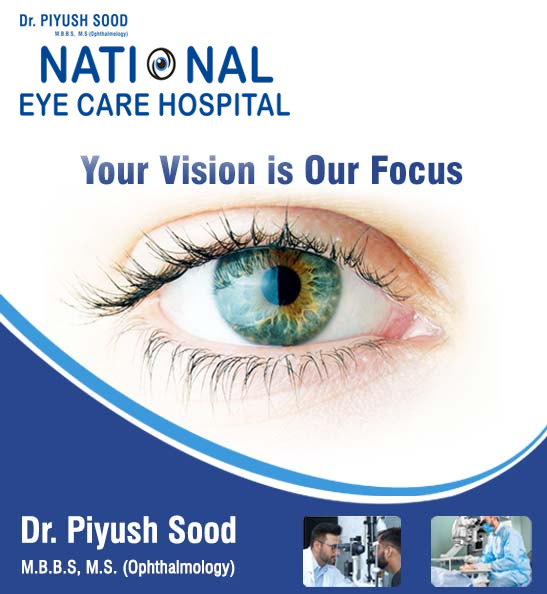Eye Facility in Andalusia: Premier Solutions for Vision Treatment
Eye Facility in Andalusia: Premier Solutions for Vision Treatment
Blog Article
Is Refractive Surgical Treatment Right for You? Factors to Take Into Consideration for Better Eyecare
In the realm of eye treatment, the choice to go through refractive surgical treatment is a crucial one that requires thoughtful factor to consider. As people seek clarity and freedom from the restraints of rehabilitative lenses, various factors enter play when figuring out the viability of such a procedure. From the ins and outs of one's eye health and wellness to the details of individual assumptions and daily behaviors, each aspect holds significance in the more comprehensive landscape of refractive surgical procedure candidateship. By examining these essential aspects with care and precision, a clearer path in the direction of educated decision-making emerges.
Eye Wellness Analysis
When considering refractive surgery, a thorough eye wellness assessment is crucial to evaluate the suitability of the treatment for each and every person. eye doctors in andalusia. This examination includes a series of tests and exams conducted by an eye treatment specialist to establish the general health of the eyes, the presence of any type of underlying conditions, and the security of the refractive mistake
Throughout the analysis, numerous variables are taken into consideration, such as the client's clinical background, present eye prescription, corneal density, student dimension, and tear movie high quality. These evaluations assist to recognize any contraindications to refractive surgery, such as corneal abnormalities, cataracts, or without treatment eye infections. Furthermore, the evaluation helps to handle patient assumptions pertaining to the prospective outcomes of the surgical procedure based upon their distinct eye attributes.
Eventually, the eye wellness evaluation is necessary in making certain the security and performance of refractive surgical procedure, as it supplies useful understandings into the person's eye health and wellness status and aids identify the most appropriate treatment alternatives for achieving ideal visual outcomes. (andalusia pediatrics)
Lifestyle Assessment
An extensive way of living analysis is important in determining the viability of refractive surgical treatment for a person's visual adjustment demands. Lifestyle factors such as occupation, hobbies, and everyday tasks play a crucial duty in the decision-making process pertaining to refractive surgery. As an example, individuals with occupations that include a high level of exercise or exposure to environmental components might have various visual requirements compared to those with less active workdesk jobs. Understanding exactly how an individual's way of living may impact their vision post-surgery is important for handling expectations and guaranteeing ideal outcomes.
Moreover, way of life routines such as sports participation, outdoor activities, or also skincare routines can influence the recovery procedure and total success of refractive surgical treatment. By carrying out an extensive way of life analysis, eye care experts can tailor their recommendations and treatment plans to fulfill the distinct demands of each person, inevitably leading to improved visual end results and contentment.
Expectation Positioning

Establishing sensible assumptions entails extensive pre-operative conversations between the eye doctor and the person. The doctor must transparently interact the potential risks, advantages, and restrictions of the treatment (eye center andalusia). People require to comprehend that while numerous people accomplish 20/20 vision or much better complying with refractive surgical procedure, some might still require glasses for particular tasks like reading or driving at evening. Managing these expectations assists click for source avoid disappointment and frustration post-surgery, bring about an extra favorable overall experience for the person.
Risk Evaluation

Variables that might enhance the risk of issues consist of age, particular clinical problems like autoimmune diseases, unsteady vision prescription, thin corneas, and impractical individual expectations. Furthermore, selecting a competent and experienced specialist, following pre and post-operative care instructions vigilantly, and revealing any appropriate case history can help mitigate dangers.
To reduce the likelihood of problems, eye doctors perform detailed pre-operative analyses to identify any kind of contraindications to surgical treatment. They additionally review the potential risks and benefits with patients throughout the appointment procedure. By involving in open interaction and shared decision-making, both the individual and the eye doctor can collaborate to establish if refractive surgical procedure is the ideal choice based upon specific danger accounts and preferred end results.
Consultation Relevance
Taking into consideration here are the findings the critical duty of notified decision-making in examining risks and prospective problems in refractive surgical procedure, the appointment process holds significant value in directing clients towards optimum end results. During the appointment, the eye doctor reviews the patient's eye health, refractive mistakes, and total suitability for surgical treatment. This initial assessment is crucial in figuring out one of the most ideal procedure for every person, thinking about elements such as corneal density, pupil size, and existing eye problems.
Moreover, the consultation acts as an opportunity for individuals to discuss their expectations, issues, and any concerns they might have regarding the surgical treatment. Clear interaction between the surgeon and the individual is necessary to make certain practical expectations and an extensive understanding of the prospective threats and advantages included.
In addition, the consultation allows the doctor to clarify the different surgical alternatives readily available, their particular end results, and the post-operative treatment required. This thorough conversation empowers individuals to make well-informed decisions about their eye care, bring about much better satisfaction and results post-surgery.
Verdict
In verdict, people taking into consideration refractive surgical procedure must undergo a detailed eye health and wellness analysis, examine their lifestyle behaviors, straighten their expectations with prospective end results, examine the affiliated risks, and focus on assessments with eye treatment professionals. These variables play a crucial duty in identifying the viability of refractive surgery for each person, making sure optimum end results and complete satisfaction with the treatment.
Individuals taking into consideration refractive surgical treatment commonly have high expectations concerning the end results, expecting ideal vision without the demand for glasses or get in touch with lenses. While refractive surgical procedure can greatly improve vision and minimize reliance on visual aids, it is critical for people to visit this site right here understand that results might differ based on specific aspects such as the level of refractive mistake, corneal density, and general eye wellness.
By engaging in open communication and shared decision-making, both the patient and the ophthalmologist can function with each other to determine if refractive surgical treatment is the best choice based on specific risk accounts and desired results.
Considering the essential role of informed decision-making in assessing dangers and prospective problems in refractive surgical procedure, the assessment process holds considerable value in guiding individuals in the direction of optimum results. During the appointment, the ophthalmologist examines the client's eye health and wellness, refractive mistakes, and total suitability for surgery.
Report this page